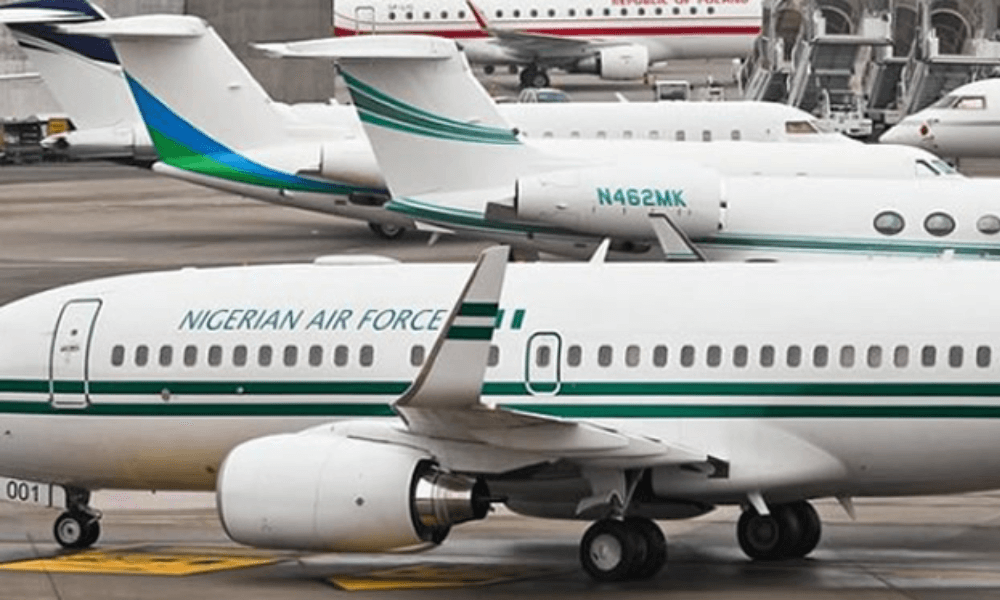The Federal Government of Nigeria has spent N19.43 billion on the maintenance and operations of its Presidential Air Fleet (PAF) between July 2023 and September 2024, according to recent data from GovSpend, a civic tech platform tracking federal expenditure.
The spending analysis reveals that N13.55 billion, representing 66 percent of the fleet’s 2024 fiscal allocation, has already been disbursed within the current year. Most disbursements were categorized as ‘Forex Transit Funds,’ primarily used for international operations, including fuel purchases and maintenance services in foreign currencies.
Detailed financial records show significant monthly expenditures, with August 2024 recording the highest frequency of transactions totaling N5.60 billion across six separate disbursements. The spending pattern indicates substantial foreign exchange demands, with notable allocations including N3.1 billion in August 2023 and N6.35 billion in April 2024.
The expenditure surge coincides with the acquisition of a new Airbus A330 aircraft in August, purchased for $100 million through service-wide votes. The nearly 15-year-old ACJ330-200 aircraft replaced an aging Boeing 737 business jet that had become increasingly expensive to maintain. According to Bayo Onanuga, Special Adviser on Information and Strategy to President Bola Tinubu, the new acquisition is expected to reduce maintenance and fuel costs significantly.
Currently, Nigeria’s Presidential Air Fleet, considered one of Africa’s largest, comprises approximately 11 aircraft of various makes and models. The fixed-wing fleet includes a Gulfstream G500, two Falcon 7Xs, a Hawker 4000, and a Challenger 605, though three of the seven fixed-wings are reportedly unserviceable. The fleet also maintains four helicopters – two Agusta 139s and two Agusta 101s – operated by the Nigerian Air Force under the Office of the National Security Adviser’s supervision.
Budget allocations for the fleet have shown a consistent upward trend since 2017, with a single exception in 2020. The allocation increased from N4.37 billion in 2017 to N20.52 billion in 2024, representing a 370 percent rise in running costs. Annual maintenance expenses for individual aircraft range from $1.5 million to $4.5 million.
Aviation experts attribute the rising costs to multiple factors, including the declining value of the naira and the aging fleet’s maintenance demands. Olumide Ohunayo, General Secretary of the Aviation Round Table, points to increased security concerns affecting insurance costs and the dollar-denominated nature of maintenance and training expenses.
Recent incidents highlighting the fleet’s operational challenges include a technical issue that forced President Tinubu to use a chartered aircraft during his April visit to Saudi Arabia, and damage to Vice President Kashim Shettima’s GulfStream aircraft windscreen during a stopover at JFK Airport en route to the Commonwealth Heads of Government Summit in Samoa.
Despite attempts to reduce the fleet’s size, including a 2023 initiative to sell three jets, previous efforts to dispose of aircraft have been unsuccessful. A 2016 attempt to sell a Dassault Falcon 7x and a Hawker 4000 stalled when the potential buyer reduced their offer from $24 million to $11 million.
The government maintains that these expenditures are necessary for ensuring the safety and efficiency of presidential travel, with officials emphasizing that the aircraft serve national interests rather than individual preferences.

Leave a Reply